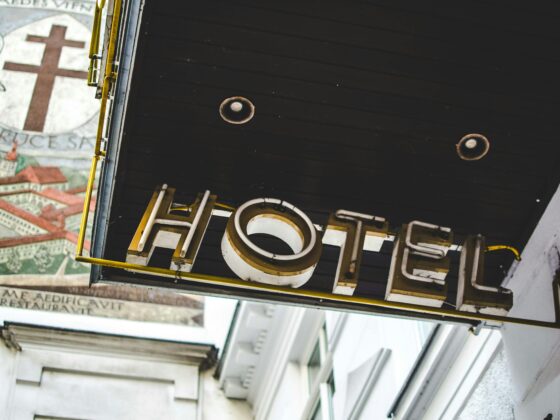
Understanding Your Emergency Processes and Systems
While some businesses rely on a variety of methods to communicate during emergencies, common challenges among staff often persist. These can include unclear communication, lack of staff training, slow response times, and difficulty staying in touch during power outages. These can impact on a business’ ability to be prepared and respond in a timely manner, putting both staff and guests at risk.
Business owners must ensure that their emergency plans and back-up communication systems are not only up to date, but well understood by all employees. Having a variety of communication tools is crucial during weather emergencies or other disruptions, as relying on a single system could leave you vulnerable if it fails. By equipping your staff with tools and training, you can foster trust and confidence among employees and guests, minimize operational disruptions, and strengthen team effectiveness.
How to Update Your Emergency Processes and Systems
There are a variety of ways to update your hotel’s emergency processes and systems. Having backup options like reliable business radios, walkie talkies, emergency alert systems, or in-person communication plans can ensure you stay informed and access critical information. These alternatives also help you coordinate help and strategies when traditional methods, like cell phones or data-dependent communication methods, become unreliable.
- Invest in Technology and Communication Tools – Stocking up on battery operating tools, two-way radios and emergency radios is an optimal way to stay prepared for weather emergencies without relying on cell phones as a means of communication. Consider investing in walkie talkies with an assortment of features. For example, two-way radios with emergency alerts can prepare users for weather emergencies by providing notifications before, during, and after an event. With additional features including extensive battery life, additional channels, user-friendly interfaces, and language settings, you and your staff don’t have to worry about losing communication during emergency situations.
- Enhance Staff Training – To ensure smooth operations and a positive guest experience, it’s essential for hotels to incorporate daily staff meetings, especially with impending disasters. Holding these meetings at the beginning or end of shifts helps ensure that everyone is on the same page, addresses any outstanding questions and boosts staff confidence in their decisions. In addition, enhancing staff training through courses like CPR, first aid, crisis management, and training on communication tools strengthens their preparedness and fosters trust amongst coworkers, guests, and the business. This not only ensures that your staff is equipped to handle emergencies, but also makes them more confident when interacting with guests. As a result, when guests ask questions about instructions, your staff will be ready with the answers, ensuring that guests feel informed and supported throughout their stay.
- Keep Guests Informed – To give guests full peace of mind during heightened weather seasons, consider showcasing your hotel’s expertise and preparation for such emergencies. To do this, implement measures such as setting up text or email alerts for guests to stay informed during their stay. Provide technology free options by providing brochures and guides in the lobby and each room explaining what to do during a weather emergency. Another idea is to explore the idea of displaying a QR code in the lobby and on brochures. This QR code can contain in-depth information on what to do during weather emergencies, how the hotel’s staff is trained for such emergencies, and further safety procedures and information. These proactive steps not only enhance guest safety, but also build trust, reassuring them they’ve made the right choice by staying at your property.
During uncertain times, it’s essential for hotels to be well-prepared for the benefit of their business, staff, and guests. Investing time and effort into updating your emergency processes and systems isn’t just about keeping up, it’s about staying prepared, efficient, and connected in an increasingly complex landscape, where both business demands, and the frequency of extreme weather events, continue to rise.
ABOUT THE AUTHOR
Caileigh Peterson serves as the PR, Content, and Radio Safety Specialist at Midland, a leader in two-way and emergency radio technology. In her role, Caileigh drives public relations and content efforts, highlighting Midland’s products for outdoor adventure, emergency preparedness, and business solutions. With a talent for writing, she creates case studies and blogs that help business owners in sectors like restaurants, hospitality, retail, and education integrate two-way radio technology into their operations. Her background spans publications, content creation, and broadcast journalism, and she holds a degree in Broadcast Journalism from the University of Missouri – Columbia.








